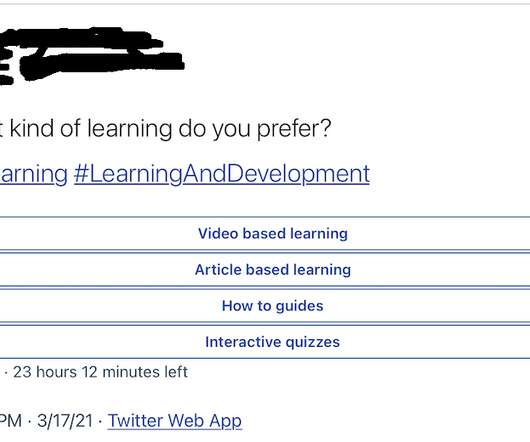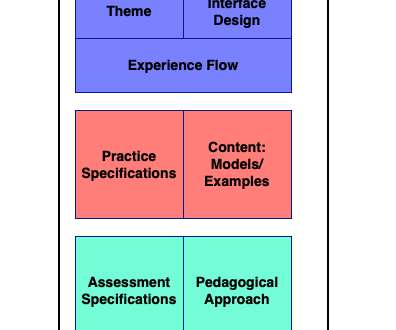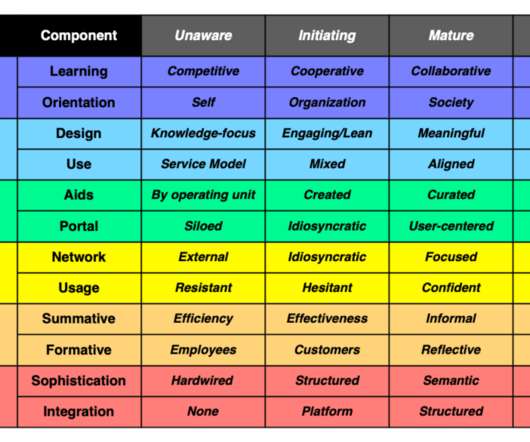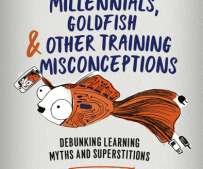Assessing online assessments
Clark Quinn
MAY 9, 2013
Writing good assessments is hard. Extensions that are high value include problem generators and randomness in the order of options (challenging attempts to ‘game’ the assessment). A greater variety of response options for novelty isn’t bad either, and automarking is desirable for at least a subset of assessment.















































Let's personalize your content